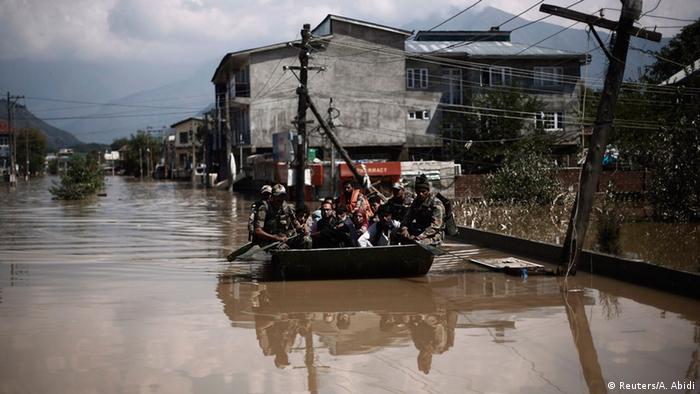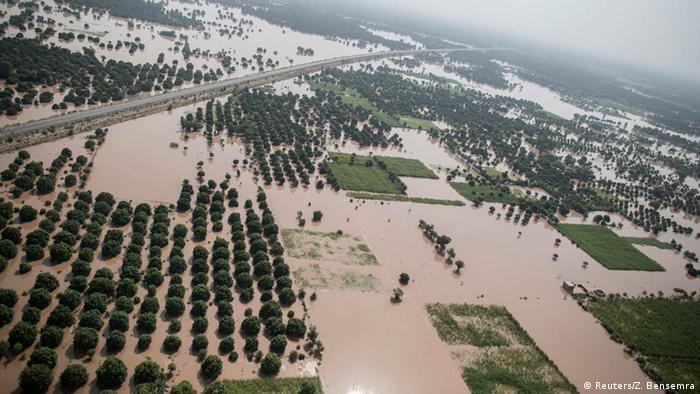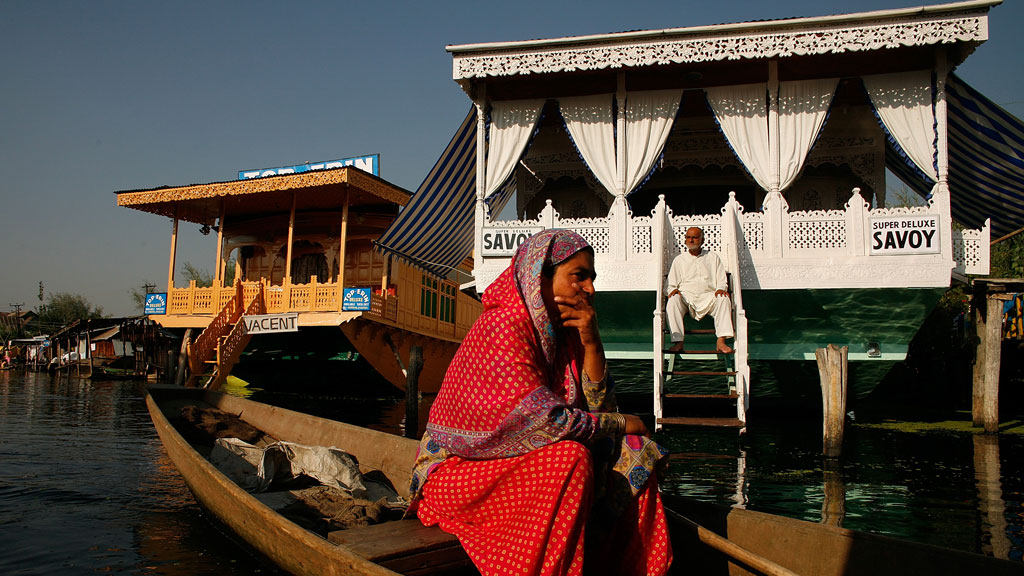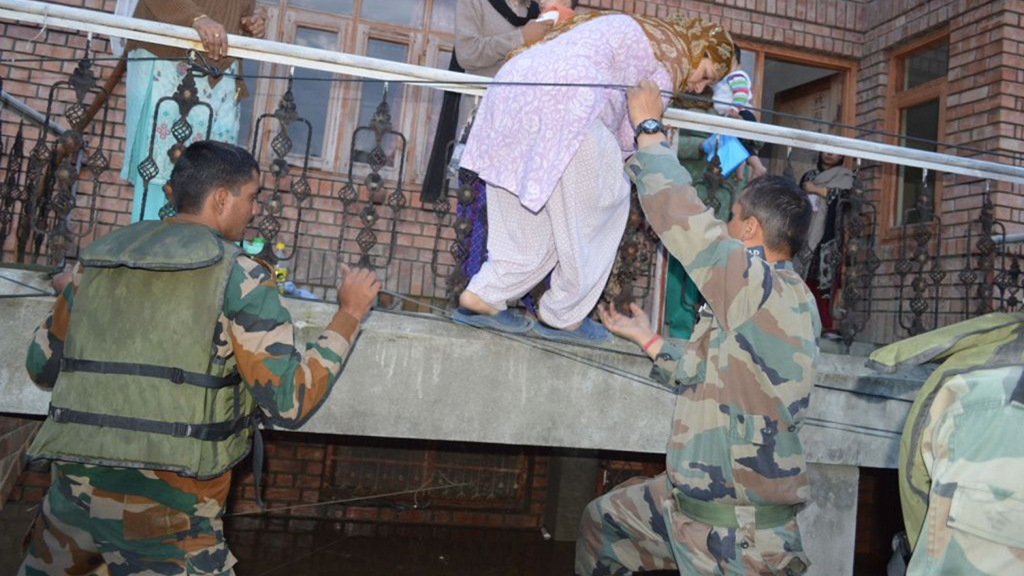Picking up the pieces in flood-ravaged Kashmir

Since 1997 Nighat Shafi pandit and her group of activists have been undertaking different kinds of projects for children and destitute women in India-administered Kashmir. On the Friday I got in touch with her, Pandit was really tense as she spoke on phone for a couple minutes: “I am very upset and startled by the floods in Kashmir. One of my close relatives is really struggling right now. I am trying to see what I can do to help her. Let’s catch up when things stabilize a little.”
On Saturday, as news of the raging waters of the Jhelum inundating her city broke nationwide, I tried to call her once again and see if all was okay. But there was complete silence from her end. Of course, I dialled her number every few hours in the hope that some connection would be established, but it was next to impossible.Meanwhile, the images being beamed on our television screens only raised one’s levels of alarm, dismay and sadness.
Our first meeting
Nostalgia enveloped as I recalled my first meeting with Pandit in 2002 when I was visiting Srinagar to gather material for a book I was writing on the valley. Extremely disturbed by the way things had turned out for her people in the shadow of the decades-long conflict, Pandit was determined to make a difference. At the time she had just set up a wonderful home in a peaceful and pristine neighbourhood for orphaned, abandoned and destitute children. She had called in a special counsellor who was interacting with the ones who were troubled and

Aerial view of the floods in India and Pakistan
traumatised to help them work through their issues and heal. All of them were enrolled in a good, English medium school to gain quality education.
Even then, Pandit had come across as strong woman who didn’t give up in the face of adversity or challenges, something I hoped and prayed she would be able to tap into as she, and all those who depended on her, faced another tragedy and hardship. What had kept her going in those early days is best expressed by her own words:
“For years, I have dreamt of building an organisation that would help mitigate the decades of suffering my people have lived through… The Help Foundation is trying to do that in different ways.”
Not one to give up, this determined woman did not lose focus and, over the next few years, she worked hard to set up handicraft centres in and around the Valley to train women to create exquisite Kashmiri handicraft and weaves. Some of their workshops are even run from the villages. And the best part is that Shehjar handicrafts are much in demand with the tourists that flock Srinagar in season.
Finally, a message
As images of Pandit interacting with the women in the centres flashed in my mind, I tried calling her up yet again. There was no response. After several days, Pandit finally sent a one-line text message:
“Alive, but out of home…”
Today, like everyone else in the valley, Pandit is deeply saddened by what has become of her home, her city. Although she knows a thing or two about dealing with trauma, displacement and rehabilitation, she feels that the road to recovery from this natural calamity is not going to be easy for the already struggling Kashmiris.
Talking through her restored phone connection she recounts:
“My home in Gogji Bagh has been badly affected by the flooding and we have shifted into a relative’s home that has lesser damages. Being a diabetic, my health has been fluctuating and the devastation and sorrow I see all around me is very difficult to contend with right now. But I know we have to buckle up and rebuild everything brick by brick.”
Despite the challenges, once the waters receded, Pandit was out immediately to first assess the situation at Help’s children’s home and the women’s centres.
“While the orphanage has escaped with minor damages some of the centres, where over 300 women were receiving training in weaving and embroidery, have been severely damaged by the waters. God only knows how our centres in the countryside are faring – whether they have been washed away or are submerged. We have not been able to touch base with them as yet,” she shares, her voice heavy with concern.
There have been many calls for help and donations in cash and kind to enable Kashmiris to tide these troubled times. Pandit’s Help Foundation has launched a full fledged relief drive. The appeal for aid on their website, reads something like this:
Pandit and her staff are ready for the hard task ahead of them.
“I think this is the first time when the rich and the poor have been equally affected by a natural calamity. There are many whose everything has been swept away. They have no money, no food, no shelter, no water, no medicine… nothing. With the winter fast approaching we all will have to double up our efforts. Besides clothing, food and medicine there is dire need for trauma counselling too as people need to talk about their pain and fear. We are slowly trying to make things happen. For instance, we are already running a toll-free helpline, 1098, for lost, stranded, marooned, sick and abused children and we are passing along the relief material coming our way to camps,”she shares.
For the ordinary Kashmiri, it’s time to forget all differences and rally around each other to get back to normal life as soon as possible. And as the popular saying goes, when the times get tough, the tough get going.
Author: Humra Quraishi
Editor: Manasi Gopalakrishnan
This is a story from Womens Features Service.








